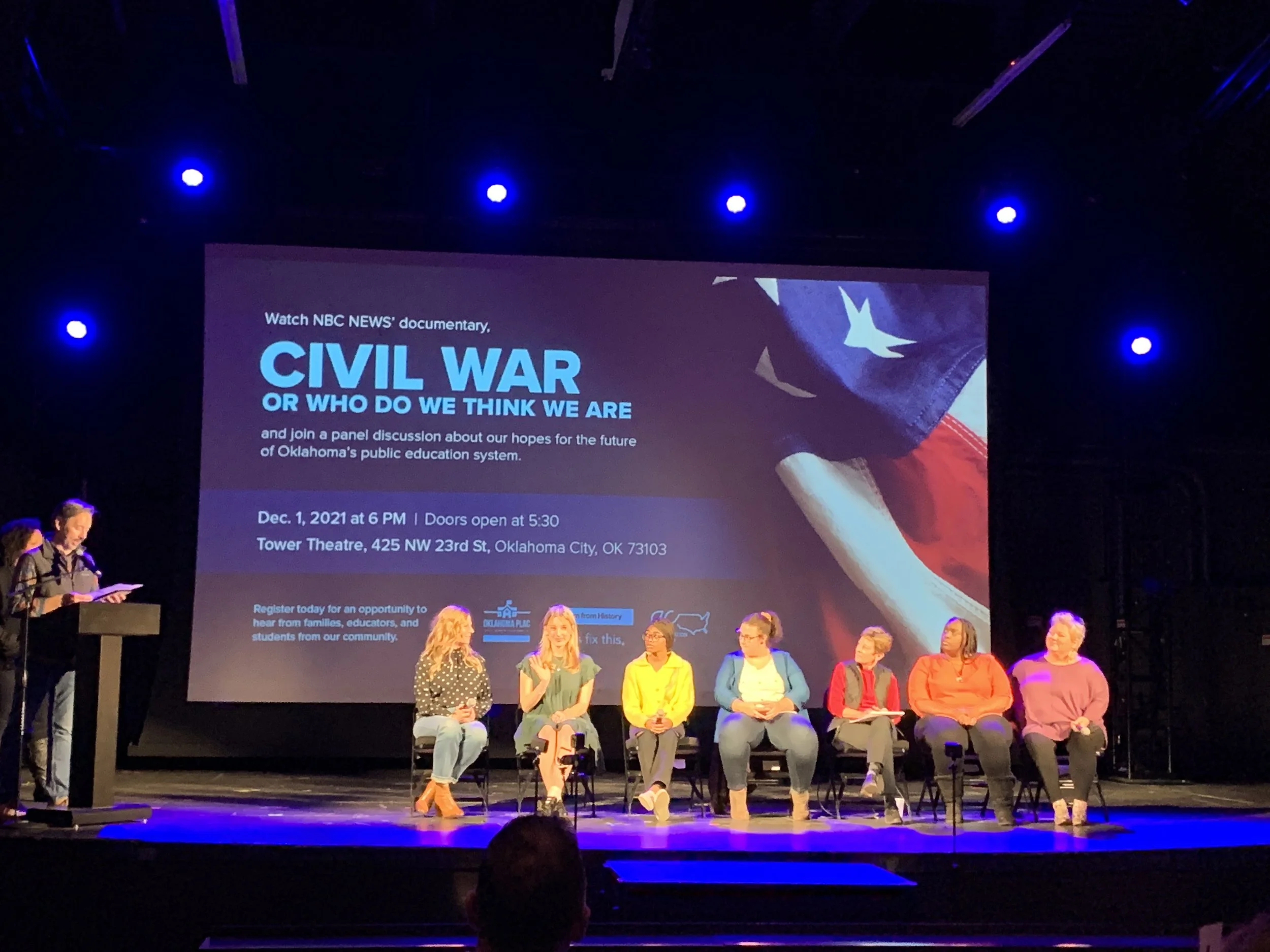Lorrie Bamford — Deer Creek School Board Member
I recently attended a screening of "Civil War or Who Do We Think We Are" by Rachel Boynton on Education in America followed by a panel discussion comprised of teachers, parents, and students to discuss the issues raised in the documentary and the hopes for the future of Oklahoma’s public education system.
The title got my attention because, as a sitting School Board Member for the Deer Creek Public School District, we had a patron recently yell at us from the podium during the public speaking portion of the business meeting, “Who in the hell do you think you are?” I am
certain her question was rhetorical; nonetheless, I have often thought about my answer since that meeting. I made several offers to meet with this patron over coffee, but she was never able to meet.
Rhetorical or not, school board members are discouraged from answering questions during the public comment portion of the meetings so as not to risk deviation from the posted agenda in compliance with the Oklahoma Open Meetings Act. Therefore, we simply listen.
I have made many offers to meet with patrons, community members, stakeholders, students, parents, and teachers in person, over coffee, or even a meal. The reason I do this is because I am a public servant and communication requires communicating with connection, empathy, and understanding, and that is virtually impossible unless meeting face to face. Those that accept my offer will tell you we leave with a better understanding of the issues, the needs, and desires of all the parties involved, even if we might not agree.
This method of connection was likewise expressed in the documentary, "Civil War or Who Do We Think We Are," and the importance of understanding perspectives. Filmmaker Rachel Boynton travels across the United States exploring how Americans tell their story of the Civil War and the concept that it has really never ended, showing up today in economics, heritage, fear, and yes, slavery, discrimination, and inequity. This is a story of how our country broke apart and has never really come back together.
As a public speaker, I always say we are wired for narrative. Speaking and story-telling are critical to understanding. Boynton brilliantly has the students ask her questions as she is interviewing them. One of the most moving moments in the film for me was when one African American student asked Boynton what she thought about slavery. As Boynton answered, “It was wrong. It was horrible. I am very sad that it happened,” you could see this student’s otherwise stoic, strong young eyes fill with tears, her face soften, and her lip quiver. She felt heard. She felt seen. Someone was finally seeing the pain she feels from the history of slavery, discrimination, inequity, and the repeated efforts of policy makers to whitewash it all and sweep it under the rug, to silent the voices that want to speak to us from the past and present so as to understand and empathize with each other with the hope that this level of hate can end.
We should all strive to be empathetic human beings, to walk in the other person’s shoes to reach a place of understanding for them, and for us. Before you can walk in someone else’s shoes, you at least need to look at them face-to-face, look at their shoes, stand toe to toe. You need to be able to connect. You need to be able to have a conversation and those conversations should be able to take place in a safe space in our public schools.
School was my safe space. It broke me to hear an Oklahoma student say that she didn’t feel safe to talk about issues of racism and equity at school. I am tired of hearing this from students and educators alike. This is why Oklahoma is ranked 47th in education.
So, I have my own rhetorical questions.
Don’t we want to be better?
We need to be able to trust our children with historical, factual information, and that they can, indeed, handle it. We insist on accurate information and facts when we teach math and science, why wouldn’t have that same expectation in teaching history? We should trust our students with historical and factual information.
Be wary of policy makers whose only motive is to seek political approval at the expense of our students. Those making these decisions to silence our students and teachers or dictate
what should be taught and how are not the most qualified professionals to make those decisions. Those decisions belong to our professional educators, not someone sitting at the Capitol who has little to no training, experience, or education to make these decisions, who may not even be in the classroom and not standing toe to toe with these students and educators.
Our students have access to history and information already. It is literally available at their fingertips through their phones. We should allow them to ask questions and learn with professional educators who can teach the facts and explore the issues and effects of history on us today and in the future. How else will we know which parts of history to not repeat if we don’t understand what was happening in the first place?
How and when have we become this society of parents that insists on shielding our students from discomfort? Real life is uncomfortable and by insisting that our students avoid all discomfort and uncomfortable conversations is doing a huge disservice to our students. How can they be expected to empathize with others in the real world, have difficult conversations, and manage discomfort? Measures like House Bill 1775 and the lie that Critical Race Theory is being or could be taught in our schools is nothing more than an effort to appease a base that is refusing to think about all students, history, and the future.
Why are they so intent on limiting others’ experiences and voices? Our students are already uncomfortable. Let them explore that discomfort and grapple with these issues with educators. Parents can also do this, certainly; but our public education system has a duty to teach accurately. It has a duty to raise up citizens. And it has a duty to allow free speech and the exploration of ideas in a safe environment.
If you want your children taught one story, your story, then by all means, homeschool or send them to a private school. This is public education and policy makers need to treat our educators like the professionals they are in pay, resources, respect, and the power to teach in truth and accuracy in a safe space. If we don’t stand up for them now, we are going to lose even more educators and find it impossible to replace them. Put your ego aside for the sake of the future of our children and their ability to learn, function, empathize with others, and to problem solve with others, so that when they are in the real world, they have a chance to do great things.
Stop the censorship of our students and teachers. I wish you could have heard these students – their honesty, empathy, eloquence and stating what they need and want in their education. They restored my hope and my fire to fight for them. When we want to know how to best serve our students and educators and climb above 47th in education, we must listen because they are not going to stop talking.
So, who in the hell do I think I am? I am volunteer public servant with a heart for educators and students and I will do everything I can to make certain our educators and students are empowered, not silenced, and that the needs of all students are met to help them become citizens and a proud product of public education.
One Oklahoma student said, “This conversation will not end and we will keep talking.”
And I will keep fighting.
Lorrie Bamford
Deer Creek School Board Member
The opinions expressed herein are solely Bamford’s and do not represent those of the Deer Creek School District or Deer Creek School Board.

